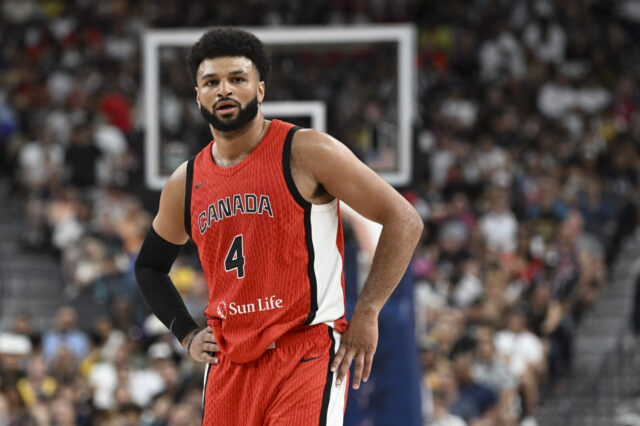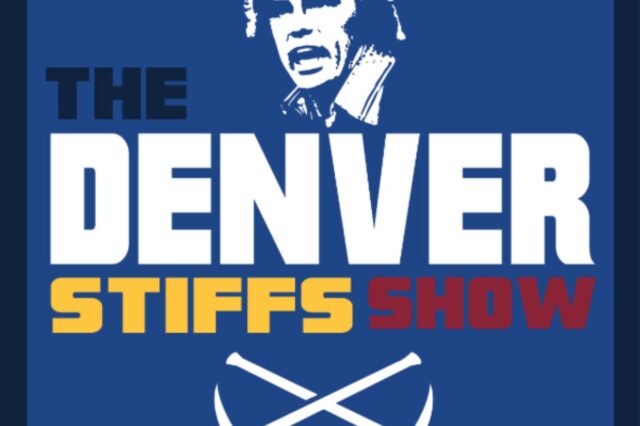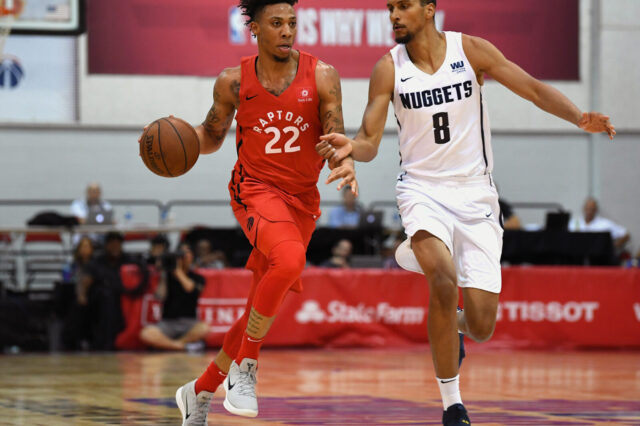For the next month, Denver Stiffs writers will ask and answer one question per weekday to help preview the 2019-20 Denver Nuggets season. The next question is about Gary Harris.
For as much discussion is had around Jamal Murray and Michael Porter Jr., and for as much responsibility is held by Nikola Jokic, the key swing piece in the 2019-20 season is Gary Harris. The starting shooting guard doesn’t have the fanfare or insanely high expectations surrounding him like Murray or Porter, but his presence is entrenched in one of the most important questions heading into this season: do the Nuggets have enough talent to win a title?
Last season, the question was definitively: no. The Nuggets weren’t ready. Jokic certainly was, posting numbers rarely seen by a player his age in the playoffs, and Murray showed he was on his way with numbers indicative of a bright NBA future. Beyond those two contributors though, the Nuggets showed some clear weaknesses. Jokic and Murray each attempted over 18 shots per game, but only two other players crossed double digits: Gary Harris with 11.3 and Paul Millsap with 11.2 per game. This disparity in shooting responsibility led to some excellent performances from Denver’s top two contributors but also saw Harris, Millsap, and the rest of the roster fall into the background on the biggest stage. Harris averaged a solid 14.2 points per game on above average efficiency to go with his excellent defensive contributions, but it wasn’t enough to move the needle when the Nuggets desperately needed a third scorer to assist the overburdened Murray.
Heading into the 2019-20 season, the Nuggets have an identity with Jokic as the focal point and Murray as the second star. Whether that’s fair to anyone is irrelevant due to the max contract the Nuggets extended to Murray at the beginning of 2019 free agency. How the Nuggets surround those two stars is the next step in building a championship contender, and while the pressure on Jokic and Murray to perform in big moments will always be present, there are many ways to reduce that pressure.
The first option is to introduce a third star into the mix, someone the defense has to respect just as much as Jokic and Murray, someone the defense genuinely fears. The second option is to introduce a number of elite role players to bolster the stars defensively and in other ways, from floor spacing to rebounding to passing. Gary Harris appears at the confluence of those two options. On one hand, the 25-year-old guard averaged 17.5 points per game in 2017-18, just two seasons ago, on elite shooting splits matched only by the following players that season:
- Gary Harris – 17.5 PPG on 48.5 FG%/39.6 3P%/82.7 FT%
- Karl-Anthony Towns – 21.3 PPG on 54.5/42.1/85.8
- Nikola Jokic – 18.5 PPG on 49.9/39.6/85.0
- Kevin Durant – 26.4 PPG on 51.6/41.9/88.9
- Kyrie Irving – 24.4 PPG on 49.1/40.8/88.9
- Klay Thompson – 20.0 PPG on 48.8/44.0/83.7
Matching those numbers again in 2019-20 and pairing them with significant defensive improvements to borderline All-Defense level would place Harris in a unique group. He might not reach All-Star levels of production, but his impact on the Nuggets would be so high throughout the regular season and in a playoff series. Having the flexibility to run offense through Harris in the playoffs would help Murray, Jokic, and the Nuggets offense as a whole. There were signs of his capability to do that in Denver’s last playoff run, but ultimately, the Nuggets felt more confident running their actions through Murray and Jokic. Diversifying the offense will force opposing teams to account for more than just the Jokic-Murray two-man game or Jokic post actions, and in crunch time, that matters a lot.
On the other hand, there are pitfalls to assuming, even predicting, that Harris will return to the promising player he was just two seasons ago. The injury issues that have plagued Harris throughout his career have yet to fully disappear. This past year, Harris played just 57 games, struggling to return from a litany of injuries that limited him throughout the year and prevented him from achieving the requisite time with the starting unit. The Nuggets have had to rely on other players and other means, largely contributing to the offensive shift toward a Jokic-Murray two-man game. If the Nuggets have decided they want to continue down that path, they may not want Harris to be a third star, but rather an elite role player they can rely on in certain situations and not full time.
Being a star is difficult. The burden of being “that dude” on a team for every single night overly taxing for players, and Harris doesn’t have to be that player for the Nuggets to be successful. In 2016-17, Harris had his most efficient season as a Nugget, shooting over 50% from the field and 42% from the three-point line. Coincidentally, that was Denver’s most efficient year offensively during the Michael Malone era and showcased the value in Harris reducing his role, simply operating as a spot up shooter and cutter in the half court while becoming lethal in transition opportunities. He got to the rim, shot efficiently, and showcased elite chemistry with Jokic to be the outlet the big man needed all over the court.
This content is no longer available.
But if Harris is to return to elite role player status, the Nuggets need another creator and scorer on the perimeter at small forward or power forward. The 2016-17 offense flourished with Danilo Gallinari as the leading scorer and Jokic as the creator around which everything else revolved. Murray will be replacing the ball handling role of Emmanuel Mudiay/Jameer Nelson at a much higher level, but having a versatile scoring forward made everything work for Denver. It’s unlikely that Paul Millsap is that player anymore, nor should Denver ask him to be. Jerami Grant is more of a Kenneth Faried type as a finisher rather than a creator.
Could Will Barton be the answer? Can the Nuggets do without a scoring forward and instead use a floor spacer like Juancho Hernangomez or a 3&D wing like Torrey Craig? Does Michael Porter Jr. need to be really good right now to push the offense to elite levels again? Do the Nuggets need to make a trade?
In addition, the Nuggets have a big decision to make about Malik Beasley, who just experienced a historic shooting season during his Age 22 season. If the Nuggets believe him to be a capable starting shooting guard who could fill a role in Denver’s starting lineup, then Denver might have a difficult choice to make between Harris and Beasley. The Florida State product is up for a contract extension before the season begins, and it’s unlikely that Denver will pay both players with limited positional flexibility for either guy. If the Nuggets believe in Gary Harris returning to form, then the answer for whom to keep becomes easier. If not, or if the Nuggets believe they need a third star and don’t see Harris as that player, the roster becomes more convoluted and difficult to understand long term.
All of those questions are relevant if Harris returns to elite role player status, but they become far less important if he regains his previous levels of efficient scoring. If Harris is averaging 17 to 18 points per game again, the Nuggets will have an opportunity to shape their defense around Jokic and Murray to become a true championship contender. If he cannot reach that level again, and Denver falters in the playoffs, the Nuggets may start asking themselves whether they need a true third star and want to gamble on Michael Porter Jr. being that player. Because if they determine that they need a third star and no clear option emerges, changes will likely occur.
Harris will be given the first crack at filling that void. He has shown the capability in previous seasons. Can he replicate that stretch of play across a full season and into the playoffs without sustaining another lengthy injury? Time will tell.


